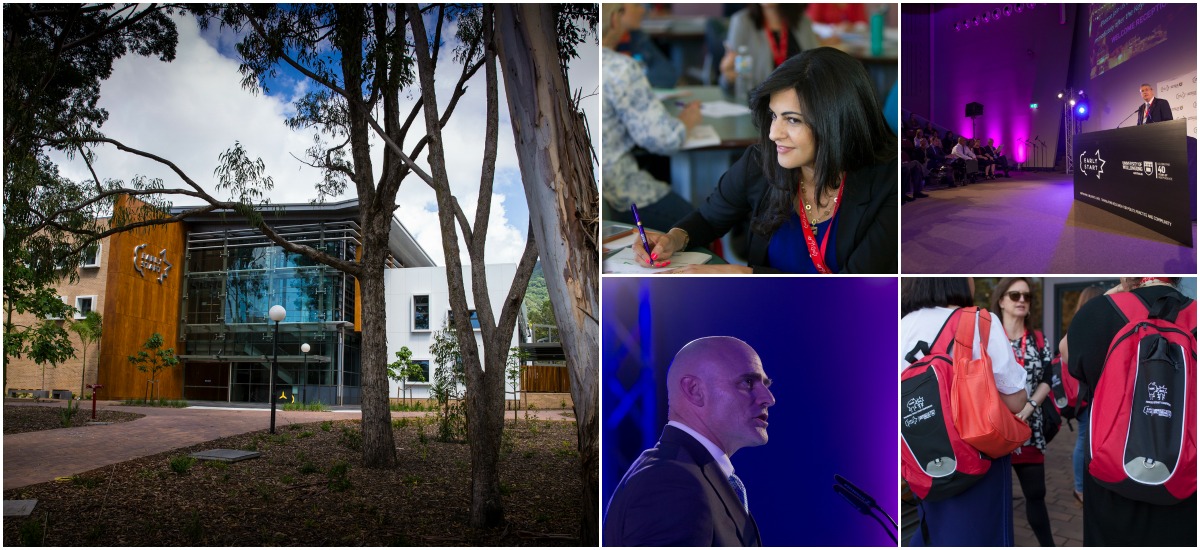September 30, 2015
Highlights from the Inaugural Early Start conference
Thought leaders gather at UOW to discuss future strategies to improve the lives of children around the world.
Thought leaders from around the world descended on UOW from 28-30 September for the inaugural Early Start conference on childhood development.
The most significant event of its kind ever held in Australia, the conference explored topics such as a brain-training computer game that can help children with ADHD, how standing preschools can improve children’s mental development and why kids learn better when they move.
Prime Minister Malcolm Turnbull kicked off the conference with a special video message on the importance of early education.

Renowned Harvard early language and literacy expert Professor Catherine Snow gave the keynote address on how we can improve quality in early childhood classrooms, considering a wealth of research has shown the early years (0-5) are the most important time for learning and a quality early education has been linked to reduced rates of crime, and for the individual, boosted employability, better jobs and a higher income.
Professor Ted Melhuish, a leading scholar and adviser to the OECD, European Commission and WHO on childhood development issues from the University of Oxford and UOW's Early Start Research Institute, shared his research on the impact of early experiences on long term development. Professor Melhuish advocates for free universal childcare in Australia and penned an opinion piece for The Guardian on the issue. He also spoke to ABC Radio National.
Childcare changes praised by experts http://t.co/U3xOlFtOTA via @RNBreakfast #EarlyStartConf #earlyyears #auspol pic.twitter.com/PBxQ0T8EvC
— UOW (@UOW) September 29, 2015
Dr Elisabeth Duursma, from UOW's Early Start Research Institute, shared her research on the impact of fathers reading to their children. Her research has shown dads who read, draw, do puzzles and other activities with their children are not only helping them develop motor skills, they may also be shaping their learning ability. Dr Duursma received international media attention for her work, including a story by the Daily Mail UK.
Professor Iram Siraj, from the University College London and UOW's Early Start Research Institute gave a presentation on the long term impact of early years maths and English education, whileProfessor Paas, from Erasmus University Rotterdam in the Netherlands and UOW’s Early Start Research Institute, discussed the promising role of human movement in children’s learning.
“Taking action in response to information, in addition to simply seeing or hearing it, creates a richer memory trace and supplies alternative avenues for recalling the memory later on,” Professor Paas said.
“Because children have a physiological need to burn energy and move around, a blend of physical and cognitive components can help preserve their motivation for learning.”
:format(jpg)/prod01/channel_3/assets/live-migration/www/images/content/groups/public/web/media/documents/mm/uow202987.jpg)